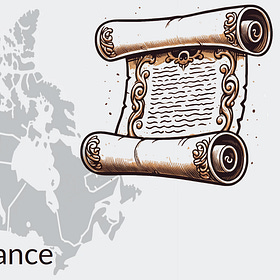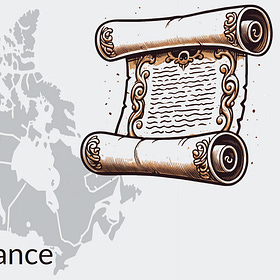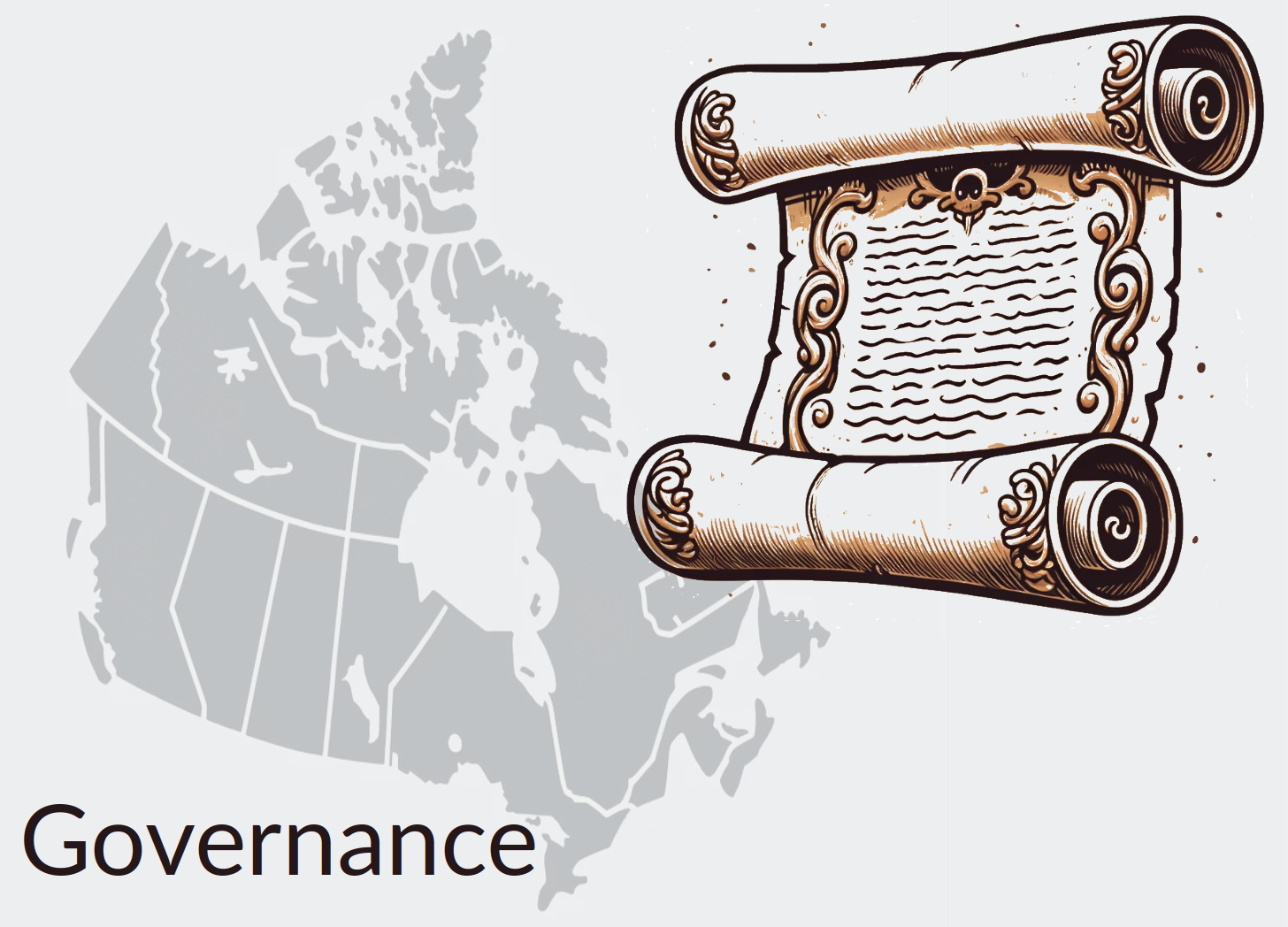Britain’s Collapse Is Coming—How Long Until Canada Joins Them?
The UK is said to be in some trouble these days. Assessing the extent of the trouble might depend on who you ask. The pessimists insist that the country’s on the very brink of economic and social collapse.
The scent of chaos is strong and I’m sure having Keir Starmer in charge isn’t helping. Watching his face as he speaks leaves me with the distinct impression that the poor fellow is convinced that if he doesn’t say just the right words his blackmailers will do unspeakable things to his wife and children. At least that would explain the complete disconnect between his words and policies vs reality.
Personally, I’m not following developments that closely. I haven’t actually set foot in the UK for more than 40 years - and even then I don’t remember feeling all that welcome. But I am curious to know whether Canada’s own economic and social policies are driving us towards a similar dark fate.
This article by someone calling himself Mr. Star does a good job defining the pessimists’ perspective on the UK. Here’s a brief summary:
Fiscal & Economic Issues
Triple-lock pensions drive unsustainable spending.
Expensive welfare schemes (free cars for the disabled, disability benefits, social housing for foreign-born).
NHS labeled inefficient and costly.
~$202B budget deficit projected for FY 2025.
Wealthy individuals and companies leaving due to high taxes and uncertainty.
Court rulings on “equal pay” destabilizing service sectors and bankrupting councils.
Heavy debt burden; 25% inflation-linked, high interest costs from COVID-era QE.
Economic stagnation; immigration used as a substitute for investment/productivity.
Immigration & Social Cohesion
Large-scale legal and illegal immigration (small boat crisis).
Grooming gang scandals and alleged cover-ups.
Violent gang culture tied to migrant demographics.
Frequent protests, riots, and rising racial/political polarization.
Left-wing populist and Green-Islamist coalitions emerging in urban areas.
Social Inequality
Severe North–South economic divide.
Rising wealth inequality and eroded upward mobility.
Housing affordability crisis.
Political & Institutional Dysfunction
Weak governance and corruption in Westminster and Whitehall.
Watchdogs (OBR) accused of misleading reporting.
Bureaucracy focused on political cover-ups.
No effective leadership or clear national vision; parties seen as inept.
I can’t confirm all of those claims, but they do give us a starting point for a conversation. Let’s see how Canada is currently holding up against such threats.
Canada certainly faces growing budget deficits, plenty of debt maintenance costs, and significant entitlement spending commitments. But those are nothing like the "triple-lock" pension payments and "quantitative easement" fallout that are hitting the UK. And our CPP is still actuarially sound.
It's certainly true that recent second quarter GDP numbers here in Canada paint a grim picture of a contracting economy. But the UK’s general stagnation and evidence of an exodus of high-wealth citizens are in a league of their own. And so far at least, Canadian courts haven't given us anything like the heavy handed wage controls that are so crippling for UK employers - both public and private.
The social pressures created by Britain's high immigration rates (one percent per year) are scary. But Canada's rate is probably even higher - although nearly all of that immigration is legal. The real tension in both countries is caused by the inexplicable fact that while public sentiment clearly prefers reductions in immigration rates, governments - the odd empty promise notwithstanding - seem determined to open the valves as wide as they'll go.
For whatever it’s worth, institutional trust feels marginally higher here compared to what I’m hearing from the UK. But we’re still ruled by a federal party that was apparently preferred by only 29 percent of eligible voters. That’s hardly a ringing endorsement. Although it’s also hardly unique in the historical scheme of things.
Regional inequality (compare London vs the rest of the country to Ontario and Quebec vs Alberta) and urban housing affordability are pretty much equally destabilizing in both countries.
One area where things clearly haven’t deteriorated so badly here as in the UK is free speech. Last April, the Times of London reported that British police were arresting more than 30 people a day (that’s 12,000 a year) for “offensive” social media posts. There may be political forces in Canada pushing for this kind of totalitarian overreach, but they thankfully haven’t yet succeeded to that extent.
All that adds up to my tentative conclusion that Canada isn’t necessarily circling the same drain as the UK. We’re still in a position where turning things around is possible even in the absence of miraculous intervention.
Perhaps there’s hope.
Do you have colleagues or friends who might appreciate this? Why not share the wealth:
I’ve written more on the state of Canadian society and democracy:
The Hollow Emptiness of Canadian Electoral Representation
A couple of months back I wrote about how real-world political representation for Canadians can be deeply unequal. One vote does not have the same power in PEI as it does in BC. And, in any case, the individual MPs we elect are largely powerless to do anything meaningful on behalf of their constituents.
Should We All Enjoy Equal Representation?
My recent post “Is Canada's Federation Fair?” raised questions about the relationship between contributions to the public good and political representation. That post focused on the disconnect between Alberta’s financial assistance to the rest of the country in the form of equalization payments vs their inability to push back against attacks on their natural resource extraction efforts. Should greater contributions come with stronger representation?





"my tentative conclusion that Canada isn’t necessarily circling the same drain as the UK"
Maybe not circling the drain, but we're floating to the wrong end of the bathtub.
The "Combatting Hate Act" will do in Canada what it has done in the UK with respect to stifling free speech. Police in the UK probably spend more time investigating social media posts than investigating and arresting clear crimes like theft and sexual harrassment. As a Canadian living in the UK, I would say that one of the key elements of the UK's economic decline has been the zealous commitment to net zero by both major parties -- Labour and Conservative. On the relentless illegal immigration, again, both major parties have done nothing to stop it, and when ideas are put forward to address the situation the courts say no. Voters are frustrated and feel like it's a "uni-party" and have turned to Reform in the hope they will actually do what the voters want them to do. Canada's situation is somewhat similar but proximity to the US may offer an outlet for real change that the UK doesn't have.